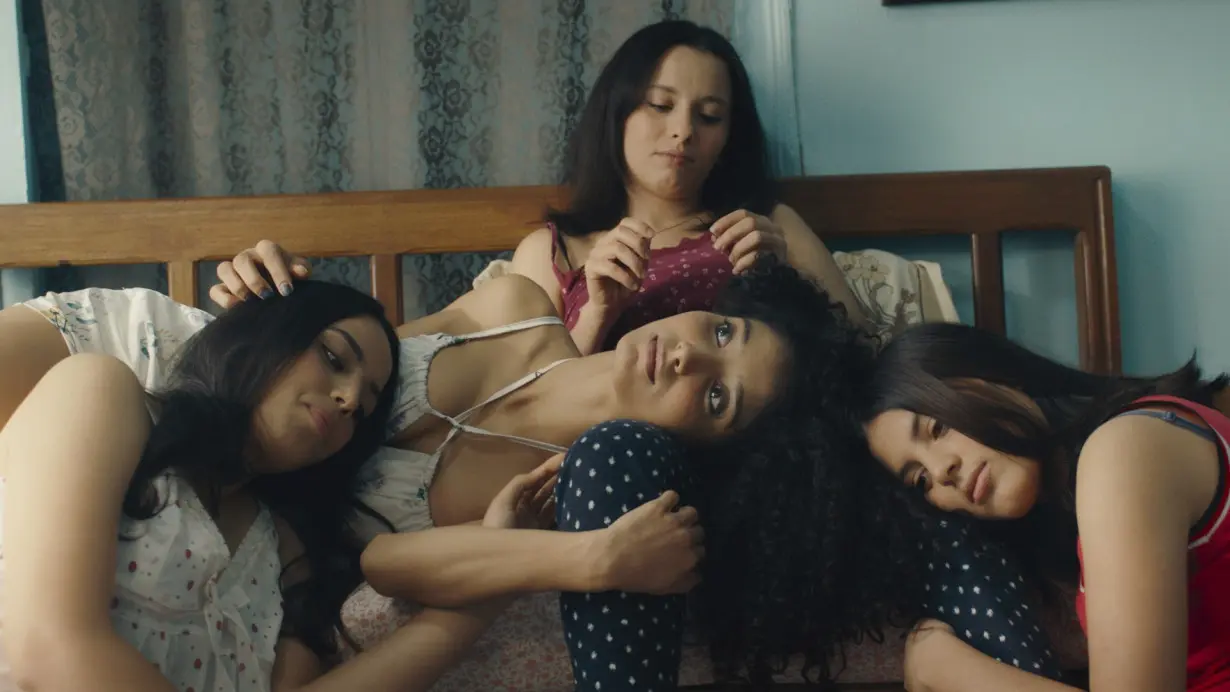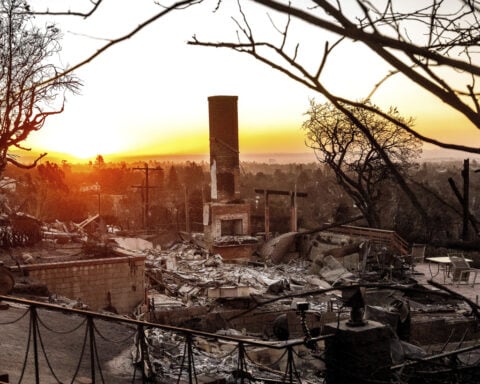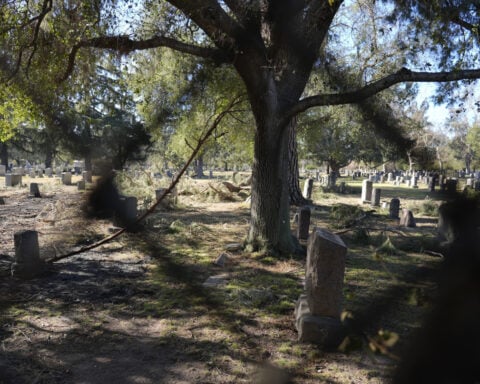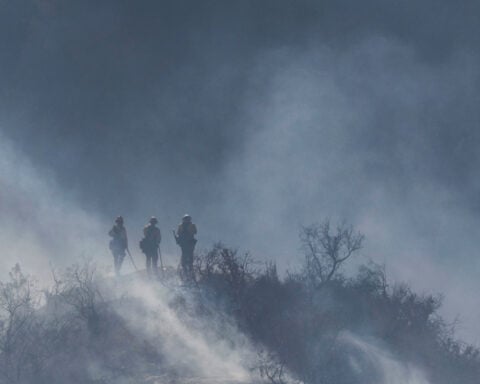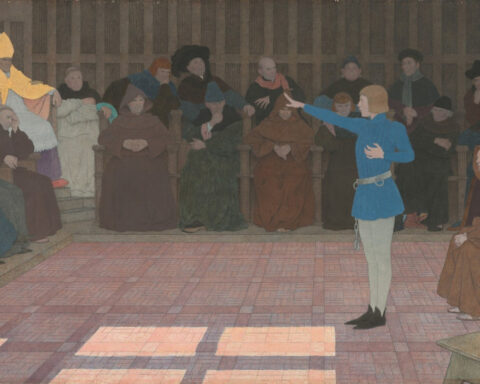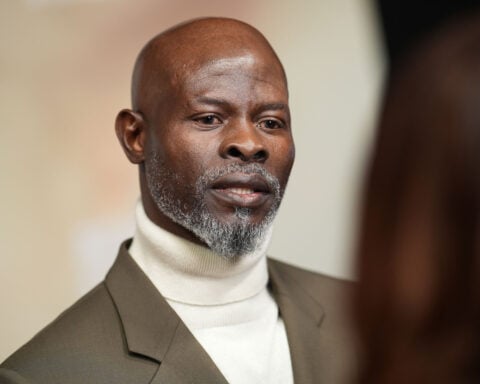Olfa Hamrouni doesn’t know much about her granddaughter; not her favorite toy nor food — is it the pasta the child’s mother loves, or something else?
The Tunisian grandmother doesn’t even let her mind go there. “I don’t want to know. What for but more heartache?” she said.
For now, she just fights for 8-year-old Fatma. The child has spent virtually all her life with her mother and aunt — Hamrouni’s eldest daughters — raised in detention in Libya, where the women wound up after leaving home as teenagers and joining Islamic State group extremists.
The real-life story of Hamrouni and her children is the focus of “Four Daughters,” an Academy Award nominee for best documentary feature film. On camera, there are many layers to Kaouther Ben Hania’s film: It’s about the radicalization of two teenage girls; an intimate portrait of a chaotic, and often dysfunctional, family life; and reflections on generational trauma, patriarchy, motherhood and adolescence.
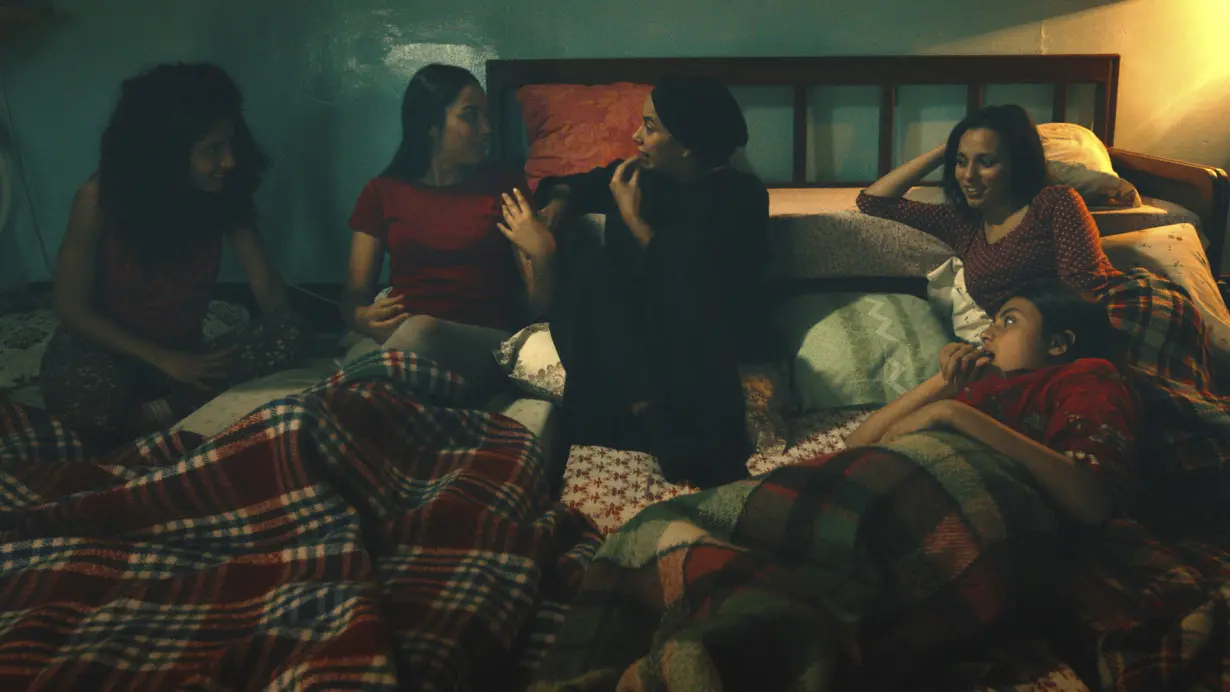
Off camera, it’s more than just one family’s tale.
The names change, the details vary, but the nightmare is familiar to some others in Tunisia, where at one point many left to join militant groups, including the Islamic State, in conflict zones abroad. Militants have also struck at targets in Tunisia. Today, families like Hamrouni’s are living reminders of that complex legacy, the unresolved issues and difficult questions persisting years later.
“It’s … an open wound in my country,” said actor Hend Sabri, who appears in the film as Hamrouni in some scenes. “As long as we don’t talk about it, then we’re not going to heal.”
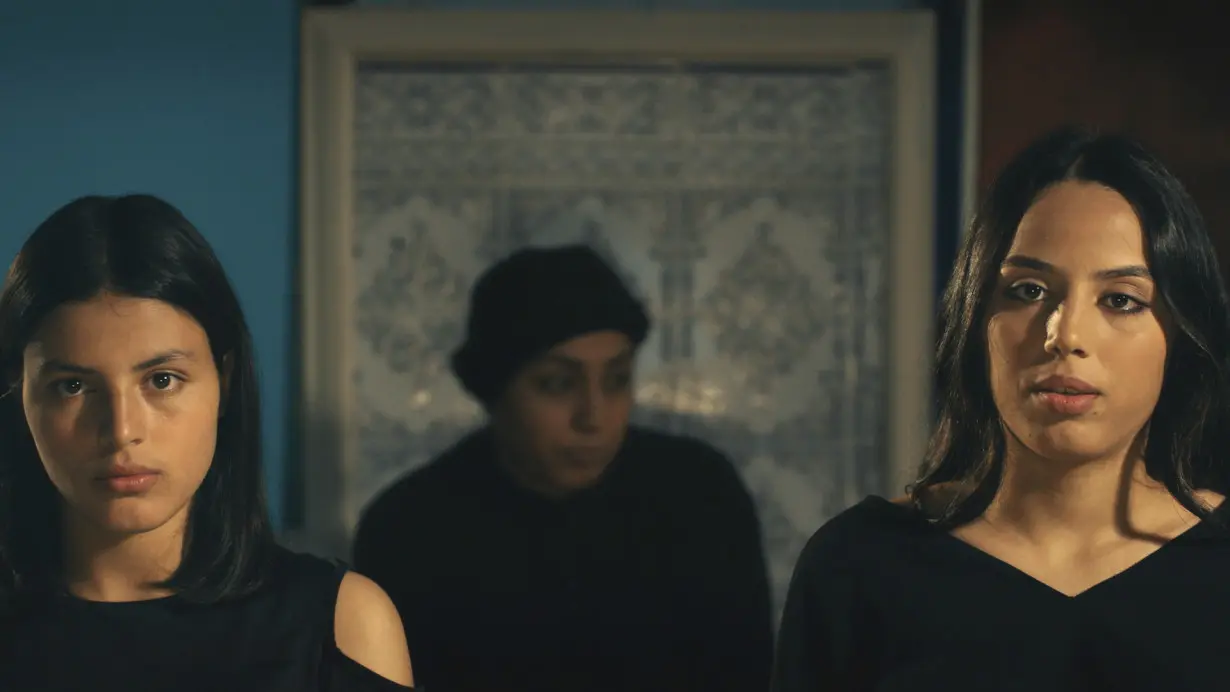
Hamrouni hopes the film's high profile will boost her advocacy for her daughters to be repatriated from Libya, where they had been sentenced to prison, and stand trial in their home country. In Tunisia, as in other countries, some people have been suspicious and fearful of returnees for security reasons.
Hamrouni wants Fatma freed from the confines of her existence. “What fault is it of hers? She hasn’t chosen her father or mother.”
Ben Hania, who wrote and directed the film, echoed the demands. “We’re trying hard to push the Tunisian government,” she said. “A country is responsible for its citizens.”
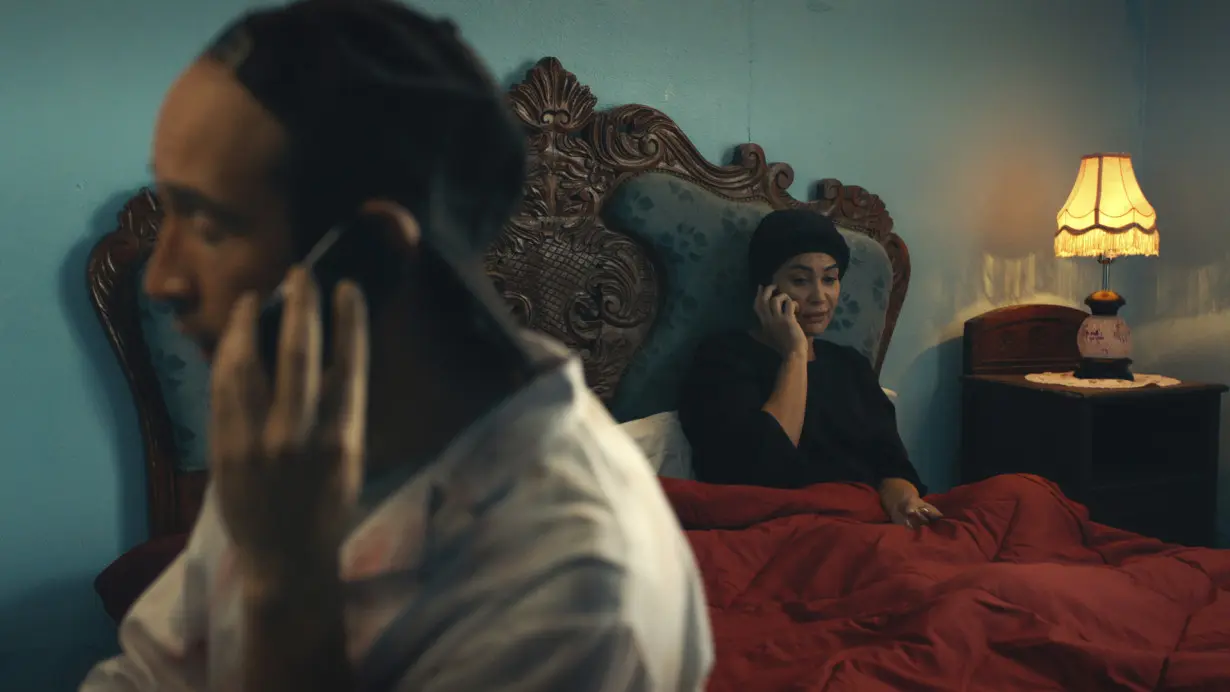
The film experiments with format. Hamrouni and her youngest daughters, Eya and Tayssir, appear as themselves. Besides Sabri, actors play Ghofrane and Rahma, the daughters who left, as Ben Hania reconstructs the family’s past in search for clues for their radicalization. (The film offers theories but no concrete motives, especially with the real Ghofrane and Rahma imprisoned in Libya.) In some scenes, the actors reenact key moments alongside family members; in others, they question, challenge or reflect. Ben Hania said her role as a filmmaker is to understand and analyze, not judge.
In the film and the family’s telling, the daughters grew up with little in a tumultuous home. Dad was largely absent and drank too much; mom was overburdened and harsh.
Hamrouni, in the film, is fixated on preserving her daughters’ sexual purity for marriage. She’s quick to hurl insults and accusations and to punish perceived or real infringements — a waxed leg, a diary entry about a first kiss — with severe beatings.
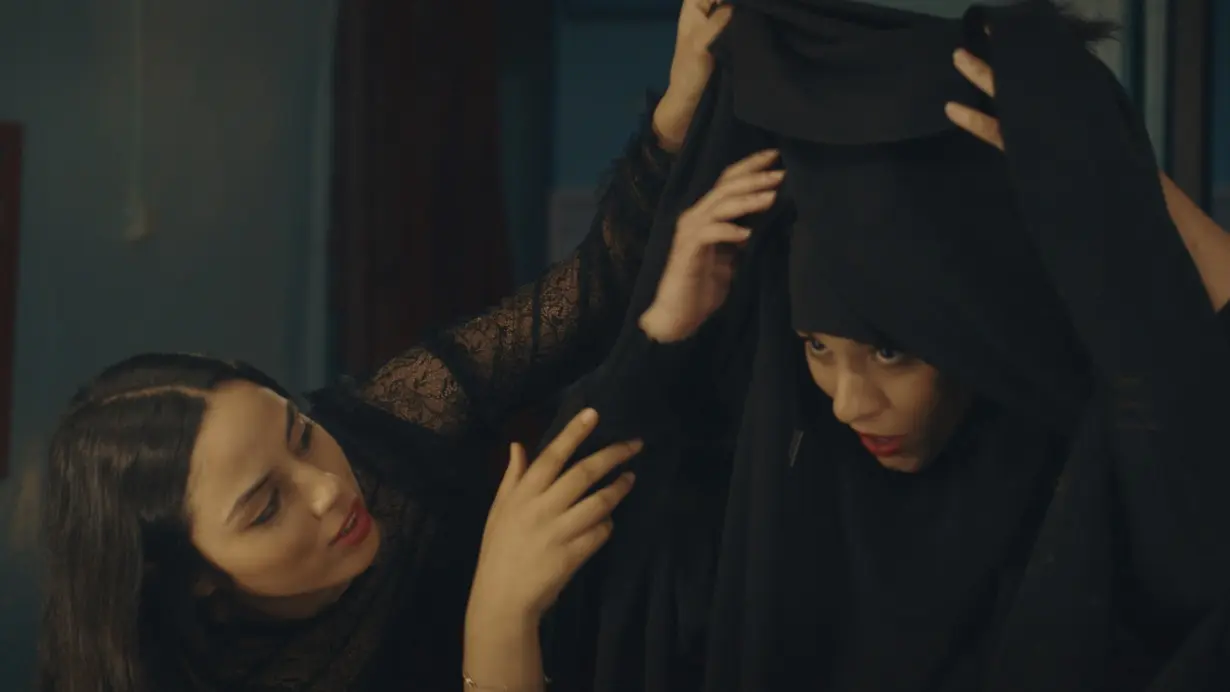
There was some rebellion, a gothic phase, a guy with a motorcycle. Then the changes that swept Tunisia following the Arab Spring pro-democracy movement more than a decade ago brought another transformation as different currents, including hard-liners and extremists, jockeyed for influence. A preaching tent popped up in the family’s neighborhood.
Ghofrane and Rahma, whose mother says grew up with only basic religious knowledge, were introduced to austere interpretations. Their radicalization further deepened — in the film, Rahma is said to have whipped younger sisters for skipping or delaying prayers, self-flagellated for such things as gossiping, and daydreamed about stoning a woman who had sex outside of marriage.
When Ghofrane left nearly a decade ago, Hamrouni, according to the film, sought police help to stop Rahma from following. She accuses the police of doing little.

The family crumbled. Hamrouni grieved the departed daughters and worried about the remaining ones. One, a child at the time, adored Rahma and had absorbed her sisters’ beliefs. The other, Eya, was unraveling.
The younger girls were placed in a government facility, which they credit with helping them rebuild their lives. But outside, the family says, life was hard and neighbors and relatives shunned them.
Mohamed Iqbel Ben Rejeb of the Rescue Association of Tunisians Trapped Abroad said some who found themselves in similar situations disowned family members who left, sometimes to protect those who remained from the fallout. Others fight for the repatriation of loved ones. Some don’t know whether their relatives are dead or alive.
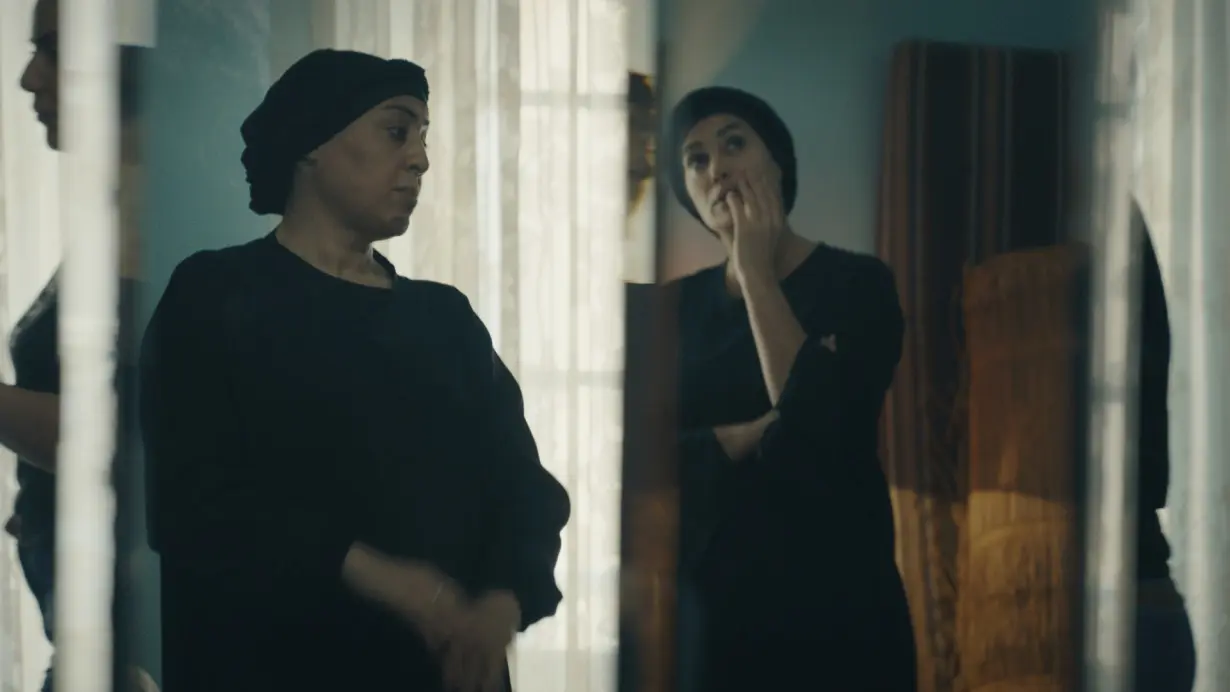
He said his organization doesn’t defend Tunisians with blood on their hands but advocates for the rehabilitation of others and, especially, for the rescue and reintegration of children taken by parents to conflict zones or born there. But he also says that Tunisia may lack sufficient capabilities and argues that authorities often appear to be dragging their feet.
He and other activists are particularly concerned for the children’s rights and futures. Inaction, they warn, can prove perilous.
“The normal place for children is … the extended family, the school,” said Mostafa Abdelkebir, head of the Tunisian Observatory for Human Rights. “After spending long periods in prisons and camps … they’ll resent society, become ticking bombs.”
Abdelkebir called on Tunisian authorities to find solutions and, especially, to bring home the children from abroad, but said that the repatriation issue is often mired in a myriad of diplomatic, political, financial, legal or logistical challenges.
Still, some Tunisian women cleared by Libyan courts were repatriated to Tunisia, where they were detained, according to Abdelkebir. A number of children have also been returned — including orphaned ones, he added. The children have been given to relatives or placed in government social care facilities, he said. Tunisian government officials didn’t provide a comment, or respond to questions on the sisters’ case and the larger repatriation issue, in time for publication.
Sabri, one of the Arab world’s best-known stars, said her heart breaks for Fatma — but she finds it harder to sympathize with Ghofrane and Rahma. She also stresses the importance of accountability for Tunisians who have joined such groups.
During filming, Hamrouni saw a mirror held up to her life.
Hamrouni, who had a difficult childhood herself, said she both recognizes where she went wrong as a mother, and that her mistakes don’t justify her daughters’ decisions. But she also blames the political climate and government policies at the time of their radicalization at a young age and says the two have now regretted their choices.
When asked about Fatma, Hamrouni’s voice softens. Her eyes light up before they well with tears.
She frets: How will Fatma learn manners? Who will teach her about her country? How is she supposed to grow up to love Tunisia, to know how to deal with others?
If Fatma ever lives with her, there will be no more hitting, said Hamrouni, who has remarried and now lives outside of Tunisia. “I will teach her right from wrong but let her make her choices.”
But nothing is certain. She feels for Fatma, for how little she knows of the world, how the world may treat her.
“Her past has been bleak,” Hamrouni said. “Only God knows what awaits her.”
___
Associated Press religion coverage receives support through the AP’s collaboration with The Conversation US, with funding from Lilly Endowment Inc. The AP is solely responsible for this content.
___
For more coverage of the 2024 Oscars, visit https://apnews.com/hub/academy-awards.

 Fire tornadoes are a risk under California's extreme wildfire conditions
Fire tornadoes are a risk under California's extreme wildfire conditions
 Bondi faces a skeptical reception from Democrats at confirmation hearing over her loyalty to Trump
Bondi faces a skeptical reception from Democrats at confirmation hearing over her loyalty to Trump
 In eyeing Greenland, Trump is echoing long-held American designs on the Arctic expanse
In eyeing Greenland, Trump is echoing long-held American designs on the Arctic expanse
 78 dead at abandoned South Africa gold mine that was scene of a standoff. Toll is expected to rise
78 dead at abandoned South Africa gold mine that was scene of a standoff. Toll is expected to rise
 Poland's leader accuses Russia of planning acts of sabotage against 'airlines around the world'
Poland's leader accuses Russia of planning acts of sabotage against 'airlines around the world'
 Vulnerable Americans live in the shadow of COVID-19 as most move on
Vulnerable Americans live in the shadow of COVID-19 as most move on
 Universities are mapping where local news outlets are still thriving − and where gaps persist
Universities are mapping where local news outlets are still thriving − and where gaps persist
 Wildfires latest: A final round of dangerous fire weather and dry conditions is in the forecast
Wildfires latest: A final round of dangerous fire weather and dry conditions is in the forecast
 Kamala Harris memes questioning her cultural background highlight Americans’ contradictions with race
Kamala Harris memes questioning her cultural background highlight Americans’ contradictions with race
 Music streams hit nearly 5 trillion in 2024. Women pop performers lead the charge in the US
Music streams hit nearly 5 trillion in 2024. Women pop performers lead the charge in the US
